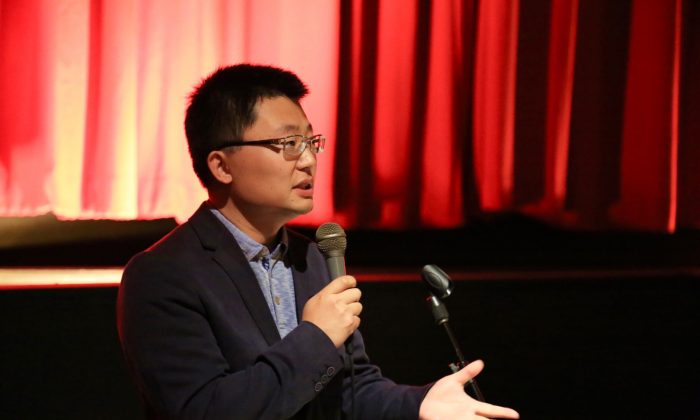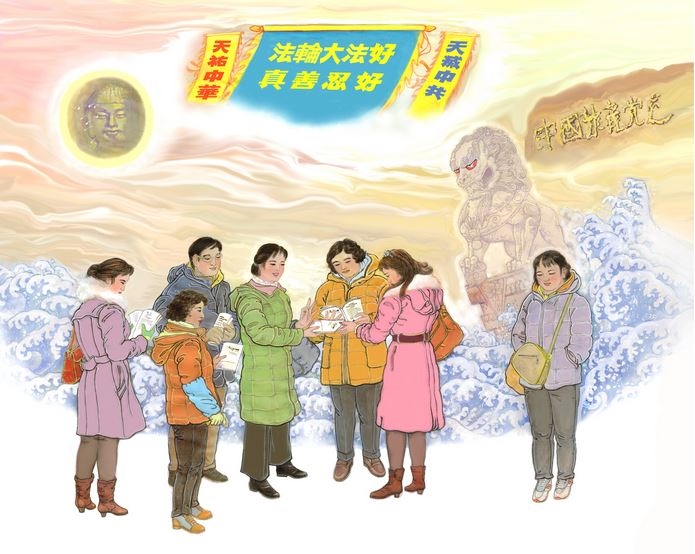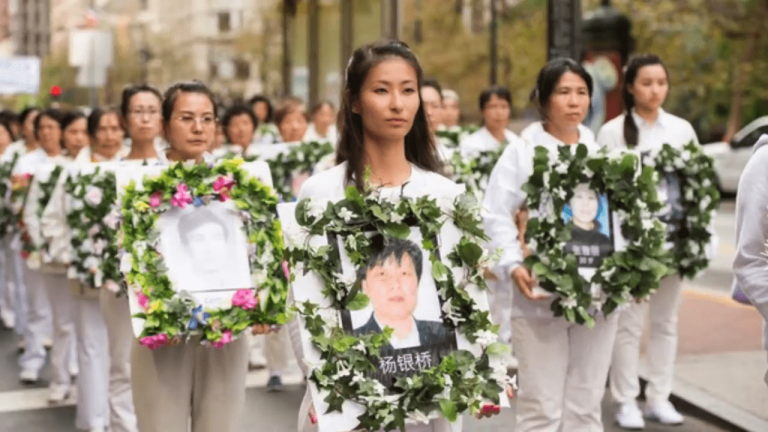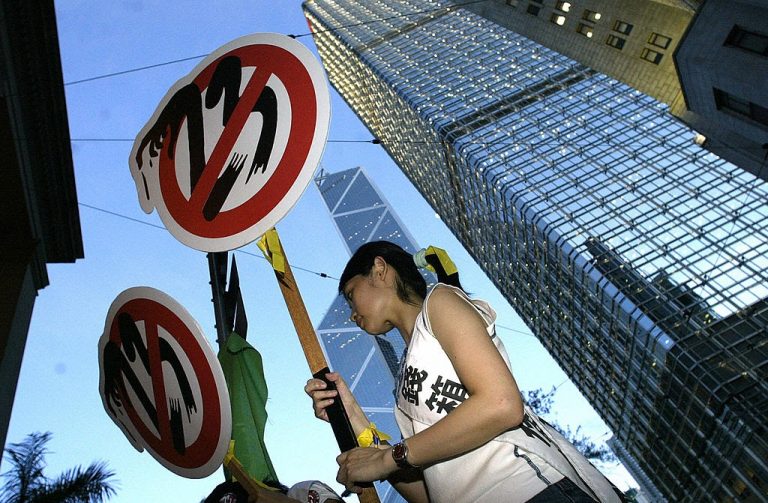In the latest work by award winning filmmaker Leon Lee, an enthralling story about Falun Gong — a spiritual practice that has been persecuted by the Chinese regime since 1999 — comes alive on the big screen in a masterful way.
The movie features a group of college students enrolled in China’s prestigious Tsinghua University whose lives are turned upside down after they become targets in the government’s comprehensive campaign against the traditional qigong discipline.
Lee, who received a Peabody Award for his 2014 documentary “Human Harvest,” described how the film narrows in on the factors behind the Chinese government’s persecution of Falun Gong and how it goes beyond just forcing individuals to renounce their beliefs — to creating an entire atmosphere of oppression that extends even beyond China’s border.
‘The crackdown completely destroyed an entire nation’
“In China, every school, every medium or large workplace, sometimes even private enterprises, the military, news organizations, almost every place, even your community, your neighborhood, there will be a Communist Party representative who is responsible to carry out the party policies,” Lee told The Epoch Times.
In other words, “the entire nation is mobilized in the crackdown against Falun Gong,” Lee added. “Your colleagues, your classmates, your friends, everybody is mobilized [to] turn against you.”
“So, in a sense, the crackdown completely destroyed the entire nation,” Lee said.
Falun Gong, also known as Falun Dafa, is a Chinese traditional spiritual discipline practiced by tens of millions of people in China and around the world since its introduction to the public in 1992.
The Chinese Communist Party (CCP) began a massive campaign to eradicate the popular faith in July 1999, incarcerating millions of people over the following decades. Thousands of Falun Gong practitioners have since died from torture and abuse, with the number still on the rise.
READ MORE:
Abused by Chinese Police for More Than 20 Years, Woman Dies 2 Days After a Final Harassment
The film explores the life of Wang (Ting Wu) — the film’s main character who witnesses his classmates turn against him after he decides to take up the practice. The story tells how Wang is expelled from school and becomes an “enemy of the state.” The movie’s director added that Wang, who the movie is based on, eventually spent eight years in a Chinese prison for upholding his faith before finally escaping China.
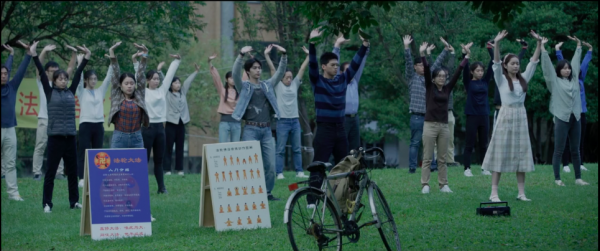
Self-censorship in free countries
In the film, the regime’s persecution of Falun Gong catches the attention of Daniel Davis, a reporter for the Chicago Post played by Sam Trammel.
The subplot highlights the issue of international media outlets buckling under pressure from the Chinese regime when it came to reporting on issues sensitive to Beijing — particularly Falun Gong, which has been a taboo subject in China ever since the persecution began.
“For example, the Canadian Broadcasting Company, at one time, was scheduled to air a documentary about the persecution of Falun Gong. And immediately, their Beijing bureau was visited by security officials. So, at the last minute, they actually pulled the documentary. It was such a hassle that they did not have time to change the lower third on screen,” Lee said.
Success
You are now signed up for our newsletter
Success
Check your email to complete sign up
“And now it’s unfortunately even worse because few large companies probably control 90 percent of the media in the U.S. And if you actually look into it, the vast majority of them have huge business entities in China; theme parks, hotels, and various investments in China.”
After seeing Wang and a classmate being chased by police for hanging a banner with the words: “Falun Dafa is good ” on a bridge, Trammel’s character decides to investigate the matter and shed light on the persecution.
Despite warnings from his assistant Ming Xu, played by Anastasia Lin (Miss World Canada 2015 and an outspoken human rights activist in her own right), the movie zeroes in on the perilous realities of going against an oppressive regime.
When explaining one of the scenes that takes place in a classroom, Lee explains how “this scene, this experience shows that, no, you won’t have a life. Simply renouncing your faith is not enough; you have to turn in your friends, you have to betray the people you love, you have to completely sell your soul to the regime in order to survive.”
On an individual level, Lee said the scene also explains that it is impossible for individuals to live normally after the all-encompassing oppression they experience and the toll this takes on their psychological health.
“Do you still call that living?” Lee questioned.
For Lee, the film is much more than just a human rights story taking place in China.
“If we look at people in China, as you see in the film, the length they’re willing to go to speak the truth, I think it’s inspiring, to me at least,” Lee said.
Challenges in creating ‘Unsilenced’
When speaking about the challenges that went into the making of the film, Lee said: “Most of my films have centered on human rights issues in China, partly because nobody else is doing it. But until I started really doing these films, I didn’t know just how difficult it would be.”
Indeed, many of the issues surrounding CCP pressure on foreign media spotlighted in the film became a reality for Lee during production.
When scouting locations for the movie, Lee told his production team, “Guys, we’re making a film about China, but there are two things you need to know. Number one, we cannot use a Chinese cast. Number two, we cannot use Chinese locations. So good luck.”
In addition to budgeting and logistical difficulties, Lee also explained how the team faced an uphill climb in terms of casting.
“Even when we decided to make this film in Taiwan, several senior cast members, even after signing a deal memo, would back off, sometimes only days before production would start.”
“In terms of locations, it was the same thing.” Lee said. “Initially, I thought Taiwan is a democracy and this film is about China. But the fact that we cannot make it in China, but we can make it in Taiwan, actually shows the world that Taiwan is a democracy and why we need to defend Taiwan.”
However, many still feared potential retaliation from the Chinese regime, “Many people were so afraid to allow us to use their locations,” Lee added.
‘Unsilenced’ will hit select theaters in 30 cities across the U.S. on Jan. 21.
Watch the trailer here:
Unsilenced (2021) Theatrical Trailer



